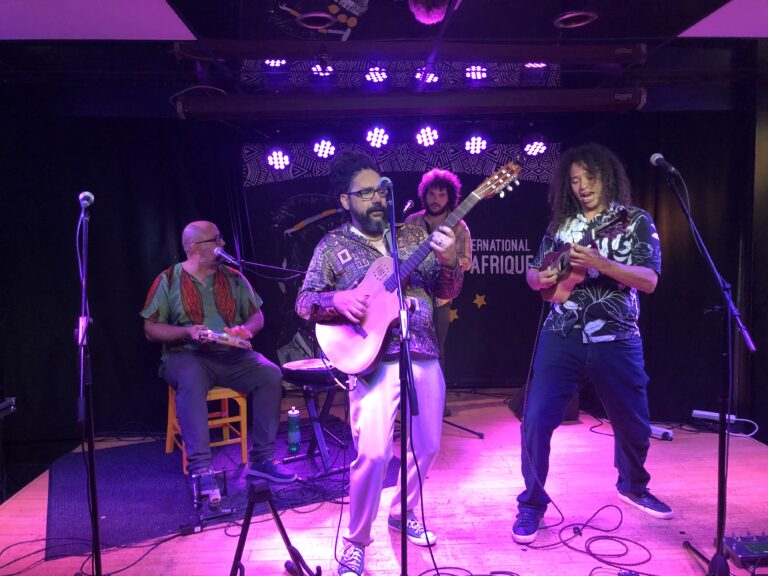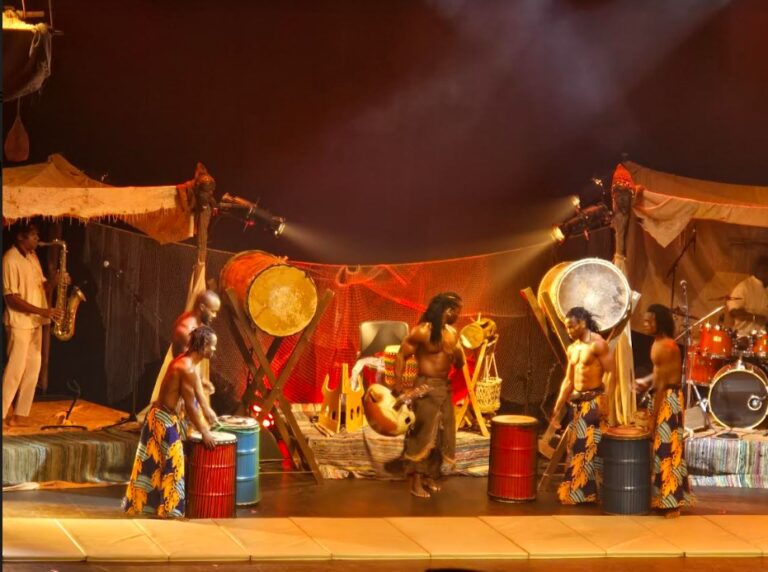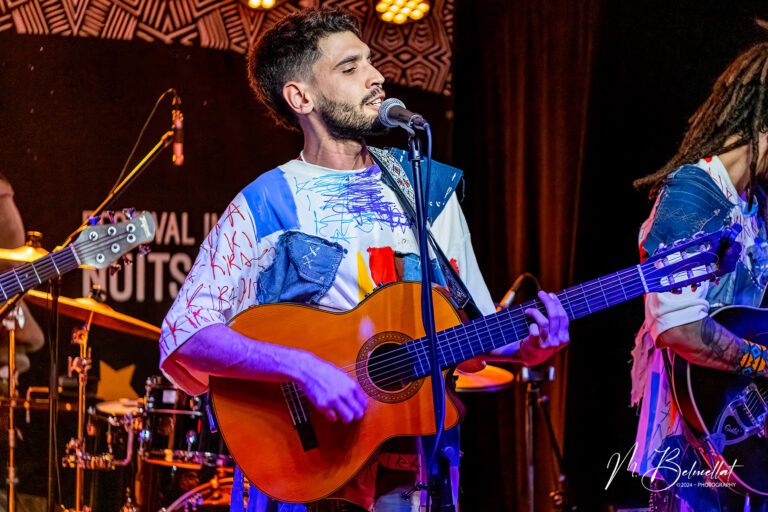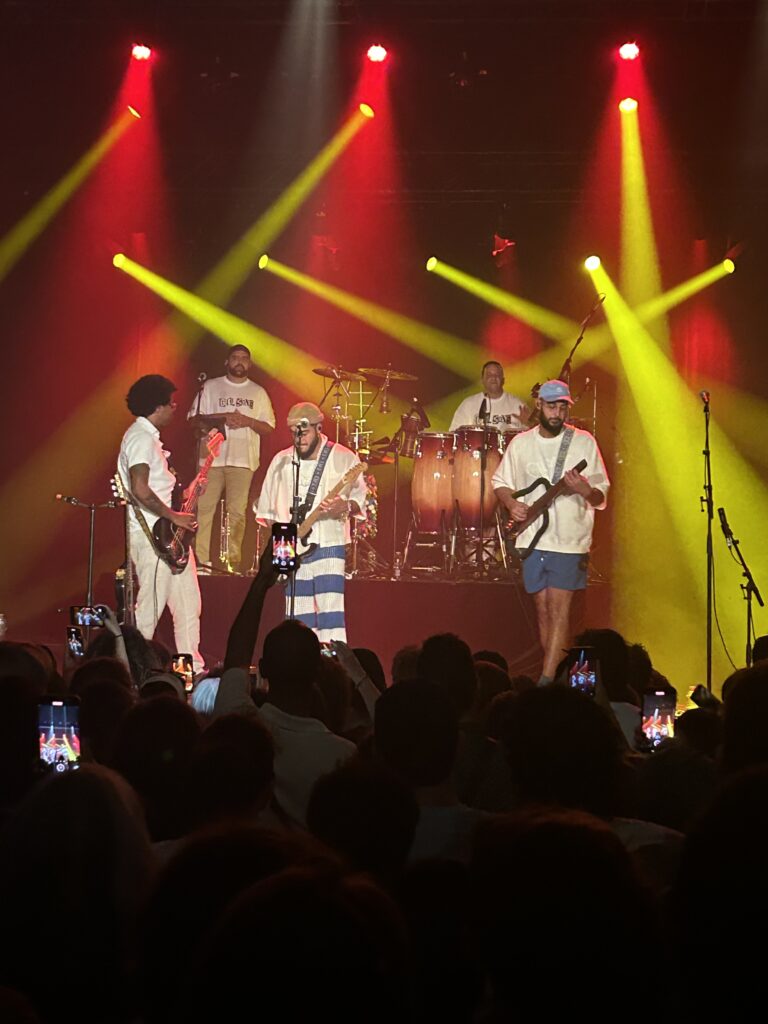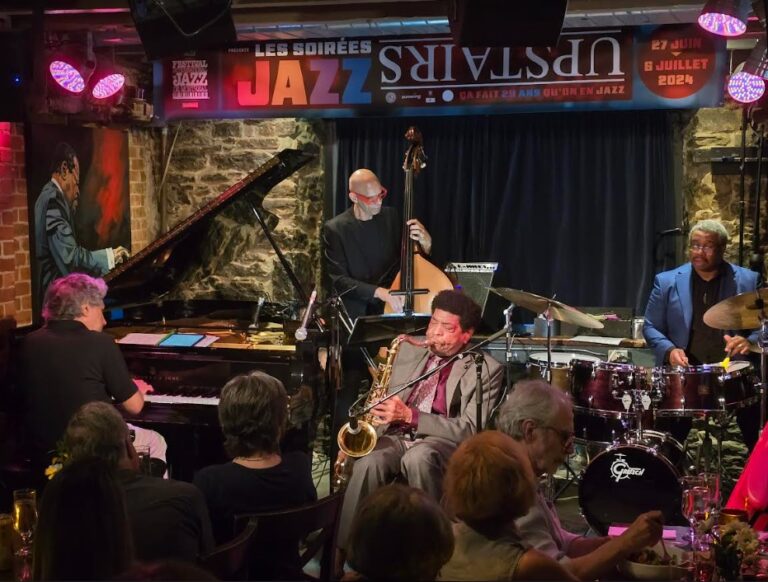The Brazilian songwriter told me in an interview: “I make MPB, Brazilian percussive music,” making a play on words with the real meaning of MPB (Brazilian popular music). We were able to see, Thursday evening at Balattou, that he was speaking the truth.
The guitarist and singer from Brasilia offered us a two-part concert, largely consisting of pieces from his records Além do Quintal and Cabaça de Agua, as well as the upcoming album Tutorial de Ebo. The temperature quickly rose in the club dedicated to world music.
Alberto Salgado is surrounded by a small musical group: Marcelo Marinho on cavaquinho, Valerio Xavier on pandeiro (small drum) and other various percussions, and an occasional triangle player (yes!). This contrasts with the multitude of instruments, including electronic, that we hear on these studio recordings. On the other hand, the guides are overflowing with communicative energy. Enough to supply Place Ville-Marie with electricity!
Marcelo Marinho is the John McLaughlin of cavaquinho, this tiny guitar with high notes. He multiplies his solo flights, dropping notes by tens per second. It is he who provides the melodic foundation of the group, with the voice and guitar of Alberto Salgado.
Salgado’s guitar is very percussive, which brings us back to this idea of music very focused on rhythm. There are forró, samba, Afro-Brazilian rhythms, often very subtle. It is an essential force in Brazilian music, beyond Bossa Nova and the forms better known here. This is what made Balattou transform into a percussive laboratory. In addition to the musicians, the entire audience was stamping their feet or tapping on the table or their thighs. Those who weren’t tapping got up to dance.
Alberto Salgado and his musicians speak very limited English, which has deprived them of sharing with us their worlds beyond music. But that did not prevent the public from feeling communion and the desire to share.
